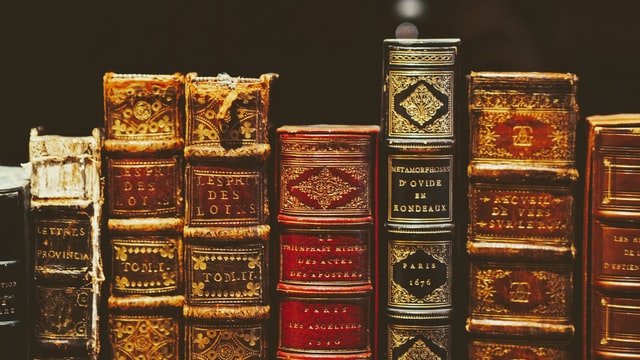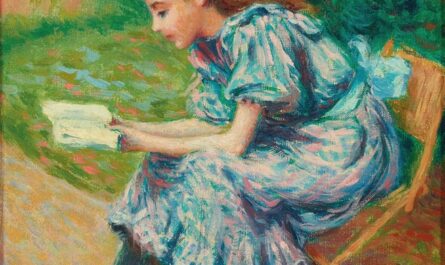Each era has its own ideas they consider universal and “too sacred to think about,” as military strategist B. H. Liddell Hart observed. Their news and books are written in the context of their time and bound by the thinking of their times. So, too, are we bound by the thinking of ours. While our culture craves the new, a trove of fascinating ideas waits to be discovered. Old books – even those which haven’t adorned a bestseller list for decades – are chock full of “new” ideas. This is because the quickest way to find a new idea is reading an old book. Reading older books to understand historical precedent and influences upon current events is commonly cited wisdom. There are less obvious reasons, as well. Philosophically, reading older books can help us understand the ways previous societies thought about themselves, other cultures, and concepts like truth and goodness. This can inform how we think about ourselves today. In addition, culture is a set of customs, traditions, wisdom, myths, and stories passed from one generation to another. This means we need to be familiar with stories and literature from the past. We study culture from the outside, and that means reading old books.
Historical Knowledge
It’s commonly cited because it’s true: Reading history gives the reader a long view of human events. When you understand the long history of wild responses to endemic illnesses, or how commonly used the tactic of censorship is, you are able to respond with reason and wisdom, instead of reacting foolishly. The only way to possess a competent understanding of current events is understanding the choices, events, and ideas which created them. This is not to say current conversations don’t matter, but those conversations should happen in light of the fact people tend to respond in predictable ways and history reveals the likely pattern. History doesn’t exist in a vacuum, and neither does the present. By understanding past failures or victories, we can navigate the present with a better idea of the consequences of our choices.
For example, we’re only able to understand the current debate around race and injustice by studying the U.S. Civil War, the Reconstruction Era, and the Civil Rights era. Likewise, to understand the framing of the U.S. government and her laws, we need to be familiar with the Holy Bible, Roman democratic principles of government and the Federalist Papers. Even random events like the 1918 Spanish Flu pandemic, and the world’s response to it, can shed light on how best to respond to current crises. Simply put, having historical precedent makes the wise or poor choice more clear.
“Reading old books” can also be extended to reading the original sources whenever possible. You’ll understand Plato more clearly by reading him for yourself than reading someone else’s notes from their own encounter with Plato. As Oxford scholar and author C.S. Lewis wrote, “The simplest student will be able to understand, if not all, yet a very great deal of what Plato said; but hardly anyone can understand some modern books on Platonism.” The earliest sources were meant to be helpful and available to the average educated person, not locked away for only those with advanced degrees. Books written about original sources tend to be more concerned with subtle differences in definitions, the writer’s impressions from their reading, and celebrating the work, rather than the larger picture of the philosophy discussed. Firsthand knowledge is also more pressing and vivid than secondhand knowledge. Something you’ve spent time studying and learning yourself has more impact than information someone else tells you. When you study a topic yourself, you develop a framework for it and link it with other areas of your knowledge resulting in a more intimate understanding. This helps the work become more meaningful and can serve you in other areas, as well. While commentaries can be helpful in expanding what you see in an older text, such commentaries should be used after an initial reading of the original. It’s always better to be familiar with a text than to read someone else’s ideas and insights in place of the original source.
Contemplation of the Soul
As we’ve often discussed, the best books are meant to be wrestled with – Bacon famously wrote the best books are meant to be chewed slowly and pondered and returned to. Quick hits and “ten minute takeaways” are the opposite of how great books are meant to be read. Many old books fit Bacon’s description. They’ve survived centuries and been returned to precisely because they have been useful to many kinds of people across many different circumstances, places, and time. They’ve been pondered for centuries and the chances are very good they will offer something to you, as well.
The early thinkers focused on problems essential to the common person; “What is the nature of man (humanity)?”, “What is good, what is evil?”, “How does one live a worthy life?”. These are not problems of the past, nor are they particularly modern quandaries. They are hallmarks of the human experience, and touched upon by thinkers from every place and time. Since Socrates declared the unexamined life not worth living, humanity has been examining life, love, death, and everything in between. Answers to the questions of existence interest and affect every one of us. The wisdom of Plato, Aurelius, or Sophocles continues to provoke our thoughts because they all deal with questions to which the final word has yet to be declared. The courage of Antigone, the quest to live life well and fairly, the desire to find the core truth of mankind; today’s society may have different solutions for those endeavors, but the questions have and will remain so long as human intellect remains. The old, philosophic classics are classics because they start the conversation.
Books written more recently dig into more narrow subtopics of earlier, broader ideas. Instead, the general reader, the student of life, is better served reading about the general scope of an idea, outlining the broad strokes of the image and diving deeply where your interests lie. Think of knowledge as a tree. First, one must understand the basic foundations on which we build knowledge. This would include processes like the scientific method, a basic logical progression; a general understanding of how things work. This is the trunk of the tree, the largest and fundamental point of the structure. From here, one can then “branch” into more specific areas. Read philosophic treatises, recent scientific journals, very old novels, or the latest biography garnering all the awards – or something else entirely. With a basic understanding of how knowledge is gathered and cataloged, you can proceed into any area you’d like. You can read about biology, physiology, and the geology with a basic understanding of On the Origin of Species. You can comprehend the reach and impact of mass media after reading Upton Sinclair’s The Brass Check and Marshall McLuhan’s Understanding Media. After reading Aristotle’s Art of Rhetoric, you’ll understand not only the art of persuasion and building a compelling argument, but the structure of today’s legal arguments, and the tenets of logic and marketing. You can delve deeper into more specific – usually more recent – knowledge once you have a good understanding of how the fundamentals work.
Cultural and Social
Arguably, the most important reason to read old books is to gain perspective on our own struggles. In the same essay, author C.S. Lewis wrote, “Every age has its own outlook. It is specially good at seeing certain truths and specially liable to make certain mistakes. We all, therefore, need the books that will correct the characteristic mistakes of our own period. And that means the old books.” By reading writers from a different age and comparing their perspective with ours, we can reveal how past thinking was correct, faulty, or somewhere in between. The further we move from an age, the easier it becomes to locate that age’s blind spots. This works with ages past, as well as our own.
A common critique of books from the past – whether Ancient Greece, the Reconstruction Era, or even just fifty years ago – is the books “reflect the values and thinking of a different era”. Is this not the point of reading them? We are all swimming in today’s values. We read old books to get outside our current thinking and possibly learn about our own thinking in the process. Reading outside the current era forces one to realize just how new and strange today’s values are. When the custom or belief of a particular era comes off as strange, it is a clue to look deeper into what was common practice at that time, and why. These sorts of culture clashes can shed light not only on their shortcomings, but our shortcomings, as well.
Old books contain ideas people have forgotten about, or which have been under-appreciated by history. We learn sometimes old ideas fail because they weren’t given a real chance to succeed, as in the case of a thinker being “ahead of their time.” Other times, ideas fail because they are communicated in ineffective ways. More than a century ago (in an old book), Chesterton wryly observed how all our new ideas are merely old ideas, “Now I have no notion at all of propounding a new ideal. There is no new ideal imaginable by the madness of modern sophists, which will be anything like so startling as fulfilling any one of the old ones…. Men have not got tired of Christianity; they have never found enough Christianity to get tired of. Men have never wearied of political justice; they have wearied of waiting for it.” [emphasis mine] . Our new ideas are merely old ideas waiting to be fully realized.
You see, it’s not enough to simply be aware of the problems and thinking of your time. You are bound by the culture you grew up in, current sensibilities, possibly demographics like economics and geography, and time. Without old books, that is, without a rich understanding of the past, the only tools you have are limited to the attitudes of your current time – and you are at the mercy of someone else to explain them to you. You merely know what is or is not acceptable today; you have no awareness of how those decisions came to be and no clue as to how they might change in the future. You are in an always shifting territory with no map. By reading old books, however, suddenly the territory becomes illuminated with trails from the past; well worn paths to civilization – or away from it. In old books, you’ve been given a trail map showing how the world arrived at this moment. You have a chance to navigate the terrain.
Gain historical knowledge. Reflect on the aims and inherent challenges of humanity, and reap the benefits from a long, informed understanding of humanity’s history.




